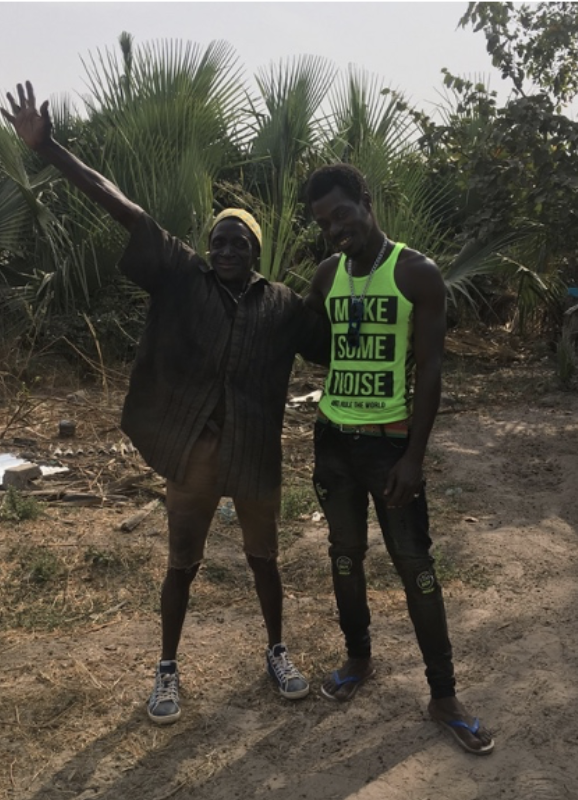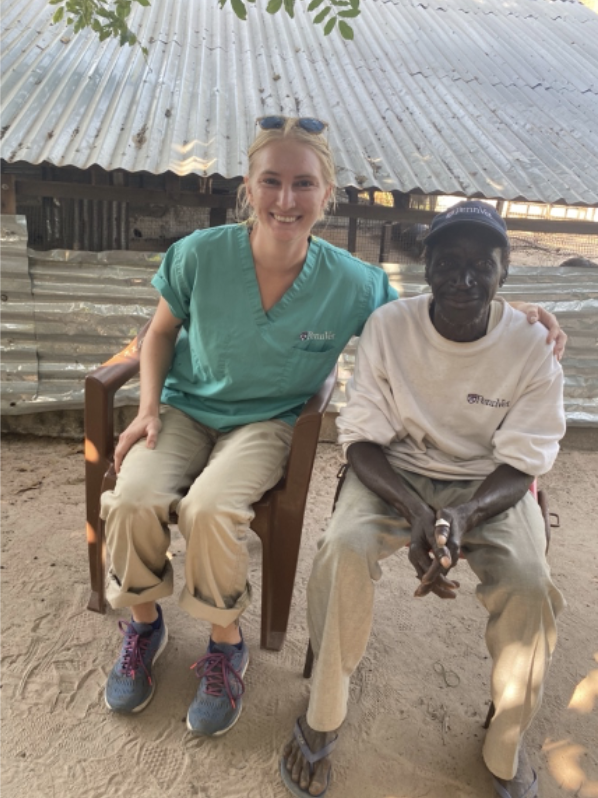Gambia Goat Dairy is a team of Gambian agriculturalists and Penn Vet faculty and students dedicated to creating a brighter, more livable future through creating productive and environmentally conscious agricultural systems that alleviate poverty, improve maternal and child nutrition, and prioritize community wellbeing. Since 2016, we’ve been exploring the role of agriculture in solving the interconnected, wicked global problems as outlined by U.N. Sustainable development goals:
1. No Poverty
2. Zero Hunger
3. Good Health and Wellbeing
6. Gender Equality
8. Decent Work and Economic Growth
10. Reduced Inequalities
12. Responsible Consumption and Production
13. Climate Action
17. Partnership for the Goals
At Gambia Goat Dairy, and through our Executive Director Brianna Parsons’ employment as a lecturer in Sustainable Agriculture at Penn Vet, we always think big about our world. Our global population is projected to increase from 7.7 to 10 billion people by the year 2050. With this, we’ll face major global challenges. Our world will need to produce more food in the next 50 years than has ever been consumed in human history. To do this in the face of climate change creating ever-growing uncertainty threatening traditional agriculture, innovations in agricultural productivity and producer resilience needed to build a world free of hunger.
West Africa is already facing these challenges, and their impact will only worsen as the region experiences some of the highest global population growth and some of the worst impacts of climate change. Currently, 23% of children under 5 years suffer from stunting malnutrition. Stunting malnutrition has intergenerational, adverse health consequences such as impaired cognitive development, decreased immune function, increased likelihood of disease, and reduced growth rates. Animal-sourced foods, like milk, meat, and eggs, have been proven to reduce stunting malnutrition, but these foods are 16-times more expensive in West Africa than they are in the U.S. These foods are more expensive for two reasons:
Underproductive livestock agriculture in the region - An average cow in in The Gambia produces just 3% of the milk per day that a cow in the U.S. can produce!
An influx of imported milk and meat products – imported products aim to fill this gap but undercut the domestic agricultural sector, by shipping excess foods produced across the globe into the region and ‘exporting’ the profits from their sales at the expense of Gambian agricultural sectors
As a result, malnutrition and micronutrient deficiencies consequently plague West Africa’s most vulnerable populations who rely on cheaper carbohydrate staples to fill their stomachs. Strategic, targeted investment into productive local livestock systems is an important means of reducing malnutrition while growing a critically important domestic industry . Productive smallholder agricultural systems have widely beneficial effects on societies by creating wealth, improving environmental stewardship, promoting food sovereignty, and boosting community nutrition. We aim to create a model that works for leveraging sustainable livestock agriculture to improve holistic community wellbeing in Gambia.
Gambia Goat Dairy (GGD) is a social enterprise that employs sustainable agricultural practices to spur economic development, empower communities, and end malnutrition. We are creating a teaching and research farm from the ground-up that investigates and employs agricultural best practices to improve wellbeing of humans, animals and the environment alike. Our small-scale commercial farm will sell pasteurized, affordable dairy products, increasing access to nutritious foods for the people in our community. We will investigate innovative educational strategies to share agricultural knowledge with farmers throughout the country and ultimately expand pasteurization capacity to create a national dairy cooperative and dairy industry. We strive to achieve impact in the following key areas:
Improving maternal and child nutrition through access to safe and affordable, domestically produced animal source foods
Improving smallholder farmer wellbeing through economically viable, domestic agricultural production – thereby improving food sovereignty of the country and spurring economic development through agricultural systems
Empowering women agriculturalists across the food value chain through targeted agricultural and business outreach
Integrating youth employment opportunities and deploying youth outreach strategies to inspire the Gambia’s future generation to create attractive employment opportunities across the agricultural value chain
Promoting environmentally sustainable agricultural practices across the region and creating a model for environmentally responsible agriculture
With The Gambia as the site of our pilot project, we are creating a model dairy system that can be widely prescribed to generate wealth for smallholders. GGD combines systems thinking with entrepreneurship and veterinary expertise, defining problems with data to formulate evidence-based solutions with tangible measures of impact. Understanding the complexity of the problem helps us design solutions that will work when solving such interconnected and challenging global problems.
Our team is made up of two full-time Gambian employees – Sulay Camara and Sainey Badjie who’ve been working with us since 2018. Dr. Brianna Parsons (VMD MSEd) serves as Executive Director and helps link The Gambia to Penn Vet. Other Penn Vet faculty/alumni involved in Gambia Goat Dairy include Drs. Tom Parsons, Katrin Hinrichs, Carla Chieffo and Dave Galligan. We also support Penn undergraduate, veterinary, and professional students through in-country and research internships, and to date have sponsored eight students with five additional students planned to work with us in the summer of 2022. Lastly, we engage in strategic partnerships to amplify the impact of our work, most recently exploring collaborations with the Medical Research Council of The Gambia, the University of The Gambia, and the Banjul American International School.
In December 2021, Gambia Goat Dairy was awarded a Penn Global Holman Africa Research and Engagement Fund award for nearly $200,000 over the next three years. Rockflower Fund generously supported this application with $30,000 in matching funds allocated over three years. With this award, we can finally build the teaching and research farm we’ve envisioned for the past 6 years. We’ll investigate agricultural best-practices, including animal health, husbandry, and nutrition. We’ll research the economics of smallholder livestock agriculture, to produce recommendations of methods to improve smallholder revenues, and we’ll continue researching best pasture management strategies – a critically important research area that’s been neglected in The Gambia over the past decades. All of our research projects will be designed to answer critical questions to Gambian farmers, and all our findings will be shared with the community through evidence-based educational outreach to get this information into the hands of the folks who need it the most.
And given our intimate ties with Penn Vet, a world class veterinary teaching and research institution, we ultimately plan to use our findings from our work in Gambia to create entrepreneurial methodologies as tools for stakeholders across the region that reduce risk and increase impact of home-grown initiatives. Here at Gambia Goat Dairy, we understand that the local community is often best positioned to create solutions that work. We strive to support those working in this space through knowledge sharing around a vision for a prosperous future. By recognizing the interconnectivity of global challenges like poverty, nutrition, and women’s empowerment, we can intentionally design solutions poised to promote global equity and wellbeing, and create a community of like-minded visionaries working together to create a better future.



